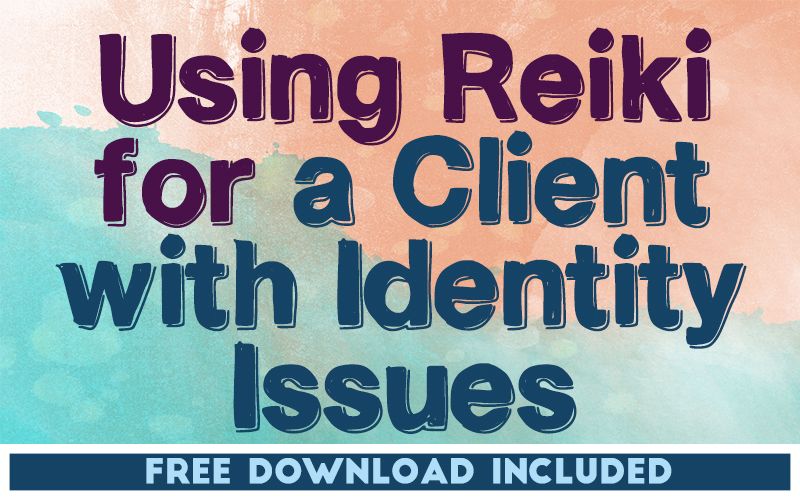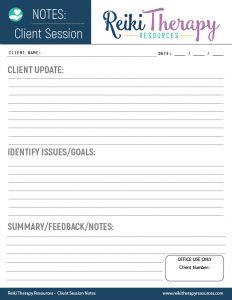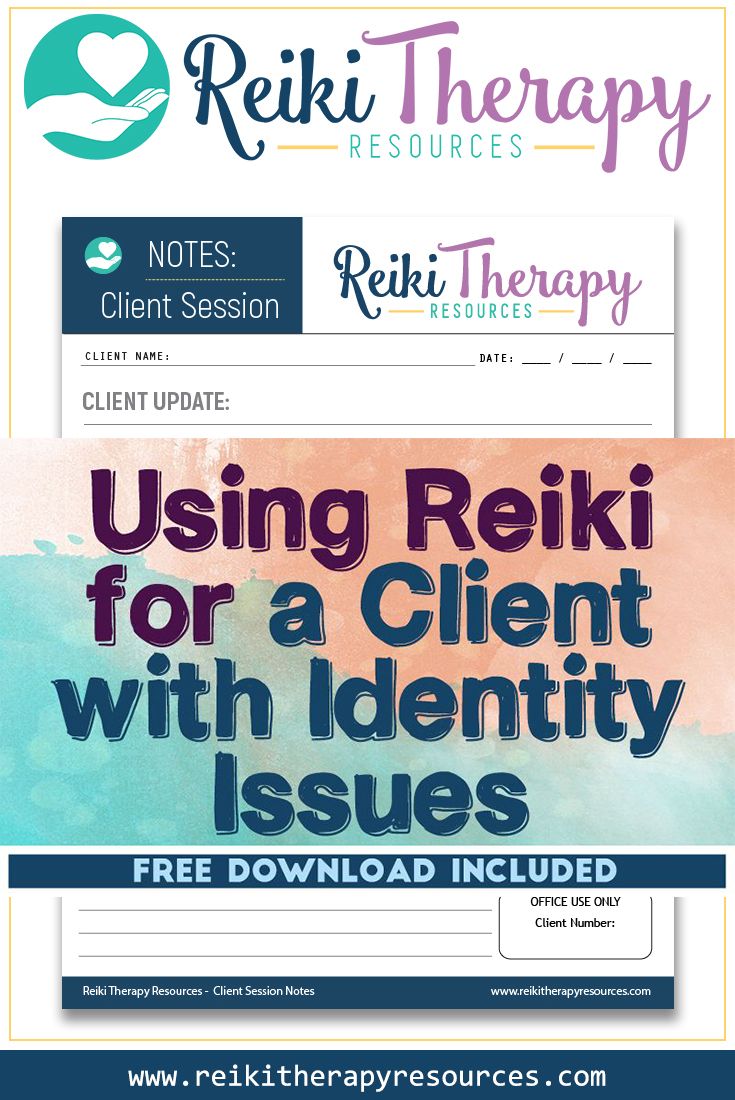
THIS POST INCLUDES:
——————————————–
1. What is identity
2. Developing Identity
3. Using Reiki for Identity issues
4. Free Download
WHAT IS IDENTITY
NOTE: THE INFORMATION BELOW IS TAKEN FROM OUR REIKI GUIDEBOOK TO UNDERSTANDING THE SELF
This guidebook can be found in the Reiki Therapy Resources store here: Reiki Guidebook to Understanding the Self
Each of us is influenced by society and social relationships along with our individual experiences. We respond to situations differently from anyone else. This response is a reflection of the experiences perceived through our own personal beliefs and identity. Our personal identity is what defines our experience of an event in a unique way compared to someone else.
Understanding how an individual uniquely experiences events helps broaden your understanding of how you react to events, including events that are stressful. To gain this understanding it is useful to undertake some basic exploration of what you perceive as influencing “self” in situations of conflict.
Understanding the self requires an exploration of social influences, personal experience, and the effect of interpersonal relationships, particularly from an early age when an individual’s personality is being developed.
Having an understanding of the self can provide insight into why you may struggle to overcome some adverse situations, or whether you use adversity as a challenge for positive outcomes. This perspective provides insight into how you interact with your clients and other Reiki practitioners and whether you view the Reiki practice as helpful.
DEVELOPING IDENTITY
As we move through the lifespan, our experiences become increasingly complex through marriage, divorce, employment, death, and other positive and negative events. The ability of someone to navigate through these experiences depends on the foundations of personal identity and self-worth that have developed from earlier years.
If these foundations are built from an experience of stability and safety, this will increase the chances of a person responding to events with resilience. If the foundations of personal identity are formed from an experience of instability, chaos, and trauma, this results in the person dealing with events on a reactionary basis that is constructed to protect the person. This protection can present as defense mechanisms that can be harmful to resolving conflict.
An individual’s identity is usually defined by various social roles that the individual is labeled with. A few examples of identity are listed below:
- Work – dentist, lawyer, nurse, driver, teacher, leader, colleague
- Interests – musician, artist, runner
- Inner self – religion, meditation, cultural leader, personal development, ideologies
- Relationships – mother, father, daughter, son, spouse, sibling, friend
The strength of the roles that form the identity shows a significant investment of time from the individual. If you have pursued playing the piano for 20 years this has formed a significant part of your identity. However, if you took 3 piano lessons when you were 14, this has less influence over how your identity has formed.
You may have experienced or heard someone make a statement such as “I’m not sure who I am anymore”. This statement is usually made at a time of crisis when the individual is feeling separated from aspects of their identity. This can occur if you have been made redundant from your 20 year teaching career, or when your children leave home as adults, or when you go through a divorce. All of these critical life events test the connection you have with this aspect of your life and question how your identity is defined.
This separation from your identity can happen unexpectedly to you or be a deliberate choice by you. The dissociation can occur through significant life events, emotional maturing, or existential predicaments. Regardless of how the separation occurs, it will force you to reconsider your beliefs and attachments to your identity.
The most common outcomes from an ‘identity crisis’ are depression and anxiety. These feelings can be exacerbated if the person has low self-esteem. While an individual is progressing through the stages of identity loss, they may exhibit behaviors similar to those with depression and anxiety which can negatively impact interpersonal relationships.
If an individual views a third party as responsible for their current crisis, they may express emotions of anger, blame, and resentment. This is common when individuals lose their job or go through a divorce. The workplace or spouse becomes an outlet for anger and blame.
Everyone reacts differently to these life events. You may express your emotions outwardly or you may suppress your external emotion, yet still feels intense emotions of anger inside.
THEMES TO EXPLORE ABOUT IDENTITY
- understanding previous identity connections
- defining future identity connections
- processing emotions regarding third party blame
- processing emotions regarding anger towards a third party
- reframing blame for the ‘identity crisis’
- assisting with conflict and avoidance issues
- assisting with depression outcomes
- assisting with anxiety outcomes
USING REIKI FOR IDENTITY ISSUES
The healing process for exploring and understanding the self is a discovery process.
Main phases of healing
The process of healing will naturally evolve through 4 main phases of exploring and improving self-esteem (CODA). A typical approach would involve the following steps:
- CURRENT self-worth
- ORIGINS of the individual’s current self-esteem
- DEVELOP a plan to improve self-esteem
- ASSESS and measure self-esteem after treatment
The timing of each phase is subjective and based on many individual factors specific to you.
PERSONAL GOALS FOR INNER HEALING
It can be useful to define healing goals into short term and long term goals. Some of the goals you may wish to explore around the issue of self-esteem are listed below:
Short term goals
- Increase self-esteem
- Develop insight into origins of low self-esteem
- Develop understanding of building skills across various domains
- Reduce fear of rejection
- Identify positive traits about self
- Develop assertiveness skills
- Express emotions
- Express personally held opinions and beliefs
- Accept and deliver personal compliments
- Improve grooming and hygiene if required
- Develop regular self-care techniques
- Identify accomplishments
Long term goals
- Increase self-esteem
- Develop positive self image
- Confidence in social interactions
- Increase assertive communication style
- Become attuned to needs and wants in decision making
- Decrease automatic negative thoughts
- Establish core belief of being lovable
These goals are not an exhaustive list, however, they will provide a starting point for the most practical short and long term goals to focus on improving self-esteem.
REIKI CAN HELP
As with all efforts for self-improvement, a level of self-regulation is required in order to cope with the effort and energy required to process physical changes and emotional experiences. Self-improvement can bring monumental personal benefits, however, any change can also inadvertently bring some stress into our lives.
Reiki can help process these difficult changes by helping us to pause and reflect on the impact of change in our lives. By paying attention to the various physical and mental effects of stress, we can then begin to initiate change in our lives.
To learn more about the self, identity, and how Reiki can help develop these aspects of an individual, you may like to purchase our Reiki Guidebook to Understanding the Self
This guidebook provides Reiki practitioners with a foundational understanding of self including the primary influences behind identity and how to deal with a crisis in identity.
Understanding how an individual experiences events including situations of conflict.
You can gain perspective on the development of past self and current self, as well as initiate goals for influencing the construct of a positive future self.
This guidebook explores the impact of interpersonal relationships, including the influence of parenting styles of the development of self-esteem.
Using this guidebook, you will be able to combat negative self-beliefs and self-criticism.
After learning the process of discovering the self you can use this guidebook to construct a positive outlook for the future self by exploring self-awareness, self-acceptance, self-worth and self-esteem.
A significant portion of the guidebook is dedicated to self-esteem with an analysis of the types of self-esteem that exist, along with how life experiences influence levels of self-esteem.
Having a solid understanding of the development of self and self-esteem is helpful when dealing with:
- Anxiety
- Depression
- Eating disorders
- Personality disorders
- Difficulty with family relationships
Included in the guidebook is a Self-Esteem Scale based on the Rosenberg self-esteem scale. The scale will provide an indication of the types of statements you may want to explore to help understand your self-esteem.
This guidebook will help you explore short term and long term goals with a view to developing a healthy level of self-esteem.
You will find a list of 13 inner healing exercises that you can use to explore the many facets of self and self-esteem.
This guidebook is direct and easy to understand. The materials presented in the guidebook are written based on current scientific literature available.
Included in the guidebook is a comprehensive reference list of publications that were used to form the content of this workbook.
The contents of this guidebook include:
Important information for the Reiki Practitioner
- Workbook Purpose
- Scope of Therapy
- Privacy and Confidentiality
- Legal
Introduction to Self
- Early development of the self
- Personality theory
Past Self
- Identity
- Core Self
- Interpersonal Relationships
Present Self
- Autobiographical Self
- Self beliefs
- Self criticism
Future Self
- Self-awareness
- Self-acceptance
- Self-worth
- Self-esteem
- What is self-esteem
- Experiences that influence self-esteem
- Gender differences and self-esteem
- Benefits of high self-esteem
- Maintaining self-esteem
- Self-esteem and lifespan
Inner Healing
- How to assess self-worth
- How to assess self-esteem
- Personal goals for inner healing
Inner Healing Exercises
- 13 Inner Healing Exercises
Reference Materials List
FREE DOWNLOAD
SIGN UP below to receive your FREE DOWNLOAD. Once you enter your email address, you will receive access to the Free Client Session Notes Template.

BUILD YOUR REIKI REFERENCE MATERIALS:
Pin this image to your Pinterest board.

SHARE KNOWLEDGE & PASS IT ON:
If you’ve enjoyed this post, please share it on Facebook, Twitter, Pinterest. Thank you!
